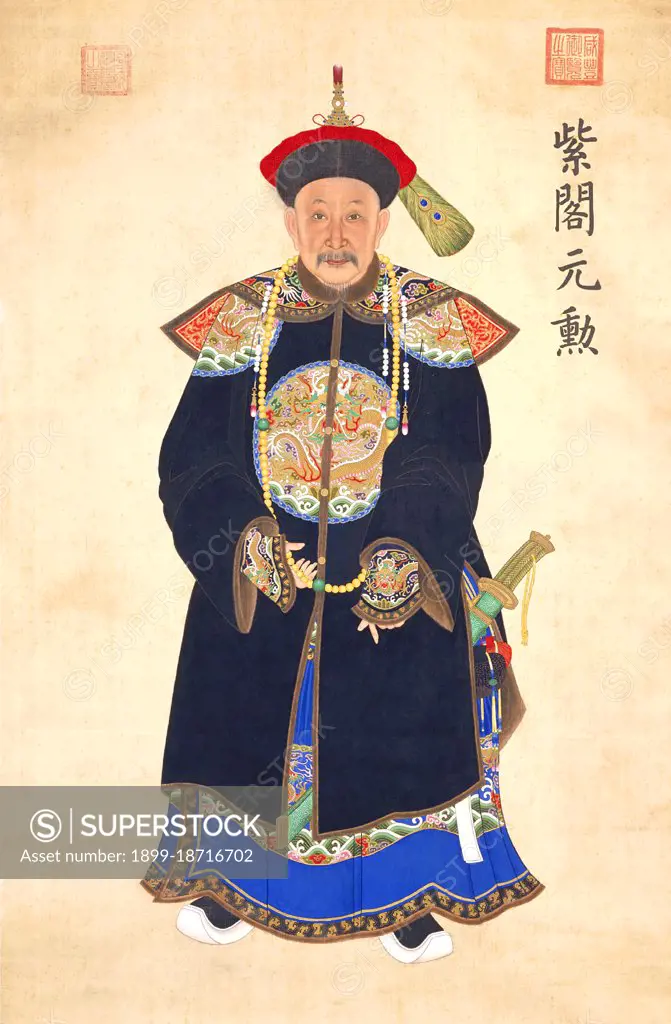Qing Imperial court portraits of senior Manchu military officers, known as Bannermen, mid-18th century. From the time China was brought under the rule of the Qing dynasty (1644 - 1683), the banner soldiers became more professional and bureaucratised. Once the Manchus took over governing, they could no longer satisfy the material needs of soldiers by garnishing and distributing booty; instead, a salary system was instituted, ranks standardised, and the Bannermen became a sort of hereditary military caste, though with a strong ethnic inflection. Banner soldiers took up permanent positions, either as defenders of the capital, Beijing, where roughly half of them lived with their families, or in the provinces, where 18 garrisons were established. The largest banner garrisons throughout most of the Qing dynasty were at Beijing, followed by Xi'an and Hangzhou. Sizable banner populations were also placed in Manchuria and at strategic points along the Great Wall, the Yangtze River and Grand Can
SuperStock offers millions of photos, videos, and stock assets to creatives around the world. This image of Qing Imperial court portraits of senior Manchu military officers, known as Bannermen, mid-18th century. From the time China was brought under the rule of the Qing dynasty (1644 - 1683), the banner soldiers became more professional and bureaucratised. Once the Manchus took over governing, they could no longer satisfy the material needs of soldiers by garnishing and distributing booty; instead, a salary system was instituted, ranks standardised, and the Bannermen became a sort of hereditary military caste, though with a strong ethnic inflection. Banner soldiers took up permanent positions, either as defenders of the capital, Beijing, where roughly half of them lived with their families, or in the provinces, where 18 garrisons were established. The largest banner garrisons throughout most of the Qing dynasty were at Beijing, followed by Xi'an and Hangzhou. Sizable banner populations were also placed in Manchuria and at strategic points along the Great Wall, the Yangtze River and Grand Can by Pictures From History/Universal Images is available for licensing today.
DETAILS
Image Number: 1899-18716702Rights ManagedCredit Line:Pictures From History/Universal Images/SuperStockCollection:Universal Images Contributor:Pictures From History Model Release:NoProperty Release:NoResolution:3500×5341
Free Research
Can't find the usage you need?
We're here to help!
Phone:+1 866 236 0087
Email: help@superstock.com
or fill out a Contact Form
Research / License Request Form
Can't find the usage you need?
We're here to help!
Phone:
or fill out a Contact Form
Research / License Request Form
Retouching Services
Our MediaMagnet division offers comprehensive retouching services at great rates. For a free quote, please send us an e-mail and we'll get back to you promptly.
Email: Retouching Service
Our MediaMagnet division offers comprehensive retouching services at great rates. For a free quote, please send us an e-mail and we'll get back to you promptly.
Email: Retouching Service
